 The Dalmore Inn’s growing community of food and coffee lovers are one of the growing number of destination that offer great freshly roasted coffee from Blendly.
The Dalmore Inn’s growing community of food and coffee lovers are one of the growing number of destination that offer great freshly roasted coffee from Blendly.
The Dalmore Inn is also home of the great entertainment with regular local events and wine tastings and is the home of the Local wine club
Blendly the commercial coffee roaster understand that more people are looking for more choice and with pallets changing and with the selection of quality food being made available, Blendly allow its customers to create their own coffee experience and have it delivered fresh.
Allowing them to explore the flavours of diffrent beans and roasts is part of the  blendly coffee experiance and with Quality food and service at the top of The Dalmore Inn’s agenda They understand that more and more top establishments and restaurants have increased sales of the hot drink three times faster than specialist outlets, By Creating coffee blends that are unique to them and there customer
blendly coffee experiance and with Quality food and service at the top of The Dalmore Inn’s agenda They understand that more and more top establishments and restaurants have increased sales of the hot drink three times faster than specialist outlets, By Creating coffee blends that are unique to them and there customer
The UK coffee shop market has enjoyed its biggest period of growth since 2008. Over the last five years, the market rose by 37%, up from £2.4 billion in 2011 to reach an impressive £3.4 billion in 2016
According to Mintel The UK consumers’ love of coffee shops, for some, the draw of the kitchen remains too tempting. Half (51%) of coffee drinkers prefer to drink hot drinks at home rather than out-of-home, including 55% of men and 47% of women. – The opportunity to drink and post your own coffee blend has much appeal to coffee customers
Research, conducted, discovered that 81 per cent of us spend roughly three and a half hours working from a coffee shop every week
 “Coffee-shopping” is a trend that’s disrupting the traditional brick and mortar retail experience. When customers are coffee-shopping, they peruse in-stock items on a tablet, rather than on the shelves and racks of a retailer. It’s so named for the social, cafe-like, atmosphere that’s designed to entice shoppers to spend time in physical locations.
“Coffee-shopping” is a trend that’s disrupting the traditional brick and mortar retail experience. When customers are coffee-shopping, they peruse in-stock items on a tablet, rather than on the shelves and racks of a retailer. It’s so named for the social, cafe-like, atmosphere that’s designed to entice shoppers to spend time in physical locations.




 According to coffee shops in the UK, Britain’s coffee shop culture is full of beans. The UK coffee shop market has enjoyed its biggest period of growth since 2008. Over the last five years, the market rose by 37%, up from £2.4 billion in 2011 to reach an impressive £3.4 billion in 2016. What is more, between 2015 and 2016 sales increased a spectacular 10.4% – the biggest year-on-year boost witnessed in the last five years.
According to coffee shops in the UK, Britain’s coffee shop culture is full of beans. The UK coffee shop market has enjoyed its biggest period of growth since 2008. Over the last five years, the market rose by 37%, up from £2.4 billion in 2011 to reach an impressive £3.4 billion in 2016. What is more, between 2015 and 2016 sales increased a spectacular 10.4% – the biggest year-on-year boost witnessed in the last five years. manage inventory across all the sales channels, – The Company provide Commodity based planning as well as Logistics, Distribution and Inventory management as well as developing new analytic to help chains better plan and manage footfall. “Britain’s appetite for coffee shops continues. Much of the growth we’ve seen in recent years is driven by habitual coffee drinkers and the continually increasing number of coffee retailers that are now ubiquitous on British high streets
manage inventory across all the sales channels, – The Company provide Commodity based planning as well as Logistics, Distribution and Inventory management as well as developing new analytic to help chains better plan and manage footfall. “Britain’s appetite for coffee shops continues. Much of the growth we’ve seen in recent years is driven by habitual coffee drinkers and the continually increasing number of coffee retailers that are now ubiquitous on British high streets According to Mintel The UK consumers’ love of coffee shops, for some, the draw of the kitchen remains too tempting. Half (51%) of coffee drinkers prefer to drink hot drinks at home rather than out-of-home, including 55% of men and 47% of women. – The opportunity to drink and post your own coffee blend has much appeal to coffee customers. Creating your own coffee and developing your own coffee blend for your customer , is part of developing your business and your supply chain to be unique to the people that you serve as most companies now understand that there is no one size fits all when it comes to developing your products and services and extending the possibilities of extending this service from the coffee shop to your customers kitchen offers greater opportunities in building trust and developing better services based around customer choice.
According to Mintel The UK consumers’ love of coffee shops, for some, the draw of the kitchen remains too tempting. Half (51%) of coffee drinkers prefer to drink hot drinks at home rather than out-of-home, including 55% of men and 47% of women. – The opportunity to drink and post your own coffee blend has much appeal to coffee customers. Creating your own coffee and developing your own coffee blend for your customer , is part of developing your business and your supply chain to be unique to the people that you serve as most companies now understand that there is no one size fits all when it comes to developing your products and services and extending the possibilities of extending this service from the coffee shop to your customers kitchen offers greater opportunities in building trust and developing better services based around customer choice. customer , is part of developing your business and your supply chain to be unique to the people that you serve as most companies now understand that there is no one size fits all when it comes to developing your products and services and extending the possibilities of extending this service from the coffee shop to your customers kitchen offers greater opportunities in building trust and developing better services based around customer choice. The fact that half of coffee drinkers prefer to drink hot drinks at home could suggest that the range of beverages for at-home consumption may, in fact, be so well-established in the retail channel that more consumers can now recreate the coffee shop experience without having to leave the comforts of home.” And it offers coffee shop owners the opportunity to develop there retail channels into this highly engaging marketplace.
customer , is part of developing your business and your supply chain to be unique to the people that you serve as most companies now understand that there is no one size fits all when it comes to developing your products and services and extending the possibilities of extending this service from the coffee shop to your customers kitchen offers greater opportunities in building trust and developing better services based around customer choice. The fact that half of coffee drinkers prefer to drink hot drinks at home could suggest that the range of beverages for at-home consumption may, in fact, be so well-established in the retail channel that more consumers can now recreate the coffee shop experience without having to leave the comforts of home.” And it offers coffee shop owners the opportunity to develop there retail channels into this highly engaging marketplace.
 and a half hours working from a coffee shop every week and it’s not just start-ups or self-employed workers doing so.‘We each spend an average of £2,160 a year working from coffee shops – but we close business deals worth £14.5bn to the UK economy’ Findings from the research included:
and a half hours working from a coffee shop every week and it’s not just start-ups or self-employed workers doing so.‘We each spend an average of £2,160 a year working from coffee shops – but we close business deals worth £14.5bn to the UK economy’ Findings from the research included: what might be a common assumption that the self-employed may be more partial to working in a coffee shop, three in four employees in large-sized businesses (250+ employees) often decide to shun the office for the coffee shop, with the approval of their bosses no less.
what might be a common assumption that the self-employed may be more partial to working in a coffee shop, three in four employees in large-sized businesses (250+ employees) often decide to shun the office for the coffee shop, with the approval of their bosses no less. drink of choice? In a thoroughly UN-British turn of events, only 8 per cent of us choose a cup of tea to power our work. In fact, it is the Italian cappuccino that fires British business (26 per cent), closely followed by a latte (21 per cent).
drink of choice? In a thoroughly UN-British turn of events, only 8 per cent of us choose a cup of tea to power our work. In fact, it is the Italian cappuccino that fires British business (26 per cent), closely followed by a latte (21 per cent).
 Strangely comforting….
Strangely comforting…. tended tour of the Highlands – or a group of locals looking for a Pleasant afternoon Lunch in the Perthshire countryside The The Tullybannocher Café is a destination not to be missed
tended tour of the Highlands – or a group of locals looking for a Pleasant afternoon Lunch in the Perthshire countryside The The Tullybannocher Café is a destination not to be missed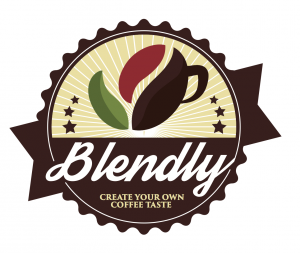 coffee that allows The Tullybannocher Cafe guests to relax after a leisurely browse around the gift area and shop were you will find a variety of items; jars of preserves, picture frames, candles, soft toys, and wall plaques to make you smile.
coffee that allows The Tullybannocher Cafe guests to relax after a leisurely browse around the gift area and shop were you will find a variety of items; jars of preserves, picture frames, candles, soft toys, and wall plaques to make you smile. Combination Travel and coffee shops have cropped up in all corners of the world.
Combination Travel and coffee shops have cropped up in all corners of the world.
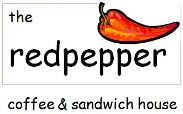 Inverness are passionate about coffee and have developed their own speciality coffee blend as part of their ongoing success in developing great food and services for its customers in Inverness that are passionate about coffee . Having your own blends specialty coffee shows that you have taken the time to develop your products and services, unique to your customers and as more and more companies move away from mass-produced products.
Inverness are passionate about coffee and have developed their own speciality coffee blend as part of their ongoing success in developing great food and services for its customers in Inverness that are passionate about coffee . Having your own blends specialty coffee shows that you have taken the time to develop your products and services, unique to your customers and as more and more companies move away from mass-produced products.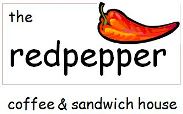 are also looking for new things – speciality in the Food and catering, and Coffee allows the Red Pepper Group to be unique in the area.
are also looking for new things – speciality in the Food and catering, and Coffee allows the Red Pepper Group to be unique in the area. Blendly creates speciality coffee blends for coffee shops and coffee customers. All their products come with the customer’s own label and QR code, as well as Tasting and Serving Notes. The company allows Coffee shops to resale the fresh coffee beans to their customers allowing them to take it to be enjoyed in their own home.
Blendly creates speciality coffee blends for coffee shops and coffee customers. All their products come with the customer’s own label and QR code, as well as Tasting and Serving Notes. The company allows Coffee shops to resale the fresh coffee beans to their customers allowing them to take it to be enjoyed in their own home.
 blender to develop a superb
blender to develop a superb 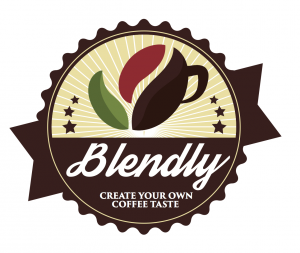 commented on The Coffee Corner in Aviemore is one of the favourite destinations when travelling. Good food, good service and good price. In fact, The Coffee Corner is so good that this place is usually packed.
commented on The Coffee Corner in Aviemore is one of the favourite destinations when travelling. Good food, good service and good price. In fact, The Coffee Corner is so good that this place is usually packed.

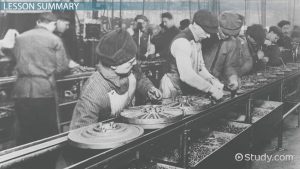 While traditional brands are looking to grab more of the global industry for themselves, based on traditional methods of scale – with a movement towards mergers between large coffee manufacturers and roasters.
While traditional brands are looking to grab more of the global industry for themselves, based on traditional methods of scale – with a movement towards mergers between large coffee manufacturers and roasters. that in entrenched in the economics of scale, its ability to grasp the advantages of economies of choice, is being met by new types of organisations that are offering more transparent services.
that in entrenched in the economics of scale, its ability to grasp the advantages of economies of choice, is being met by new types of organisations that are offering more transparent services.
 our
our  more so than how we enjoy coffee, with more people purchasing barista style machines for their homes and purchasing more and more international origin coffees and customers are expecting more.
more so than how we enjoy coffee, with more people purchasing barista style machines for their homes and purchasing more and more international origin coffees and customers are expecting more.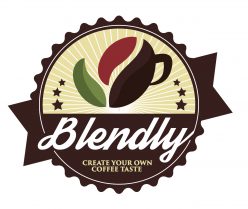 transforming from a pure shopping destination to a centre for “leisure and services” as the dramatic rise of the Internet changes the retail landscape demand for high-quality, barista-style coffee in the home has risen in recent years and this has led to innovation in manual, bean-to-cup and capsule coffee machines for the home. This is also helping independent coffee chains to better develop their brand around individual coffee blends.
transforming from a pure shopping destination to a centre for “leisure and services” as the dramatic rise of the Internet changes the retail landscape demand for high-quality, barista-style coffee in the home has risen in recent years and this has led to innovation in manual, bean-to-cup and capsule coffee machines for the home. This is also helping independent coffee chains to better develop their brand around individual coffee blends. The role of technology in food service has changed dramatically in the past few years, and no more than in the UK, where mobile technology has infiltrated many aspects of regular consumer behaviour with a new generation of gourmets is emerging in the UK aged 18- 35 years old. These consumers are keen on food with an authentic or distinctive positioning, supporting sales growth for imaginative start-ups and independents.
The role of technology in food service has changed dramatically in the past few years, and no more than in the UK, where mobile technology has infiltrated many aspects of regular consumer behaviour with a new generation of gourmets is emerging in the UK aged 18- 35 years old. These consumers are keen on food with an authentic or distinctive positioning, supporting sales growth for imaginative start-ups and independents. rk in this field are creating and developing framework to create a unique supply chain that offers transparency as well as a fair distribution of profit.
rk in this field are creating and developing framework to create a unique supply chain that offers transparency as well as a fair distribution of profit.
